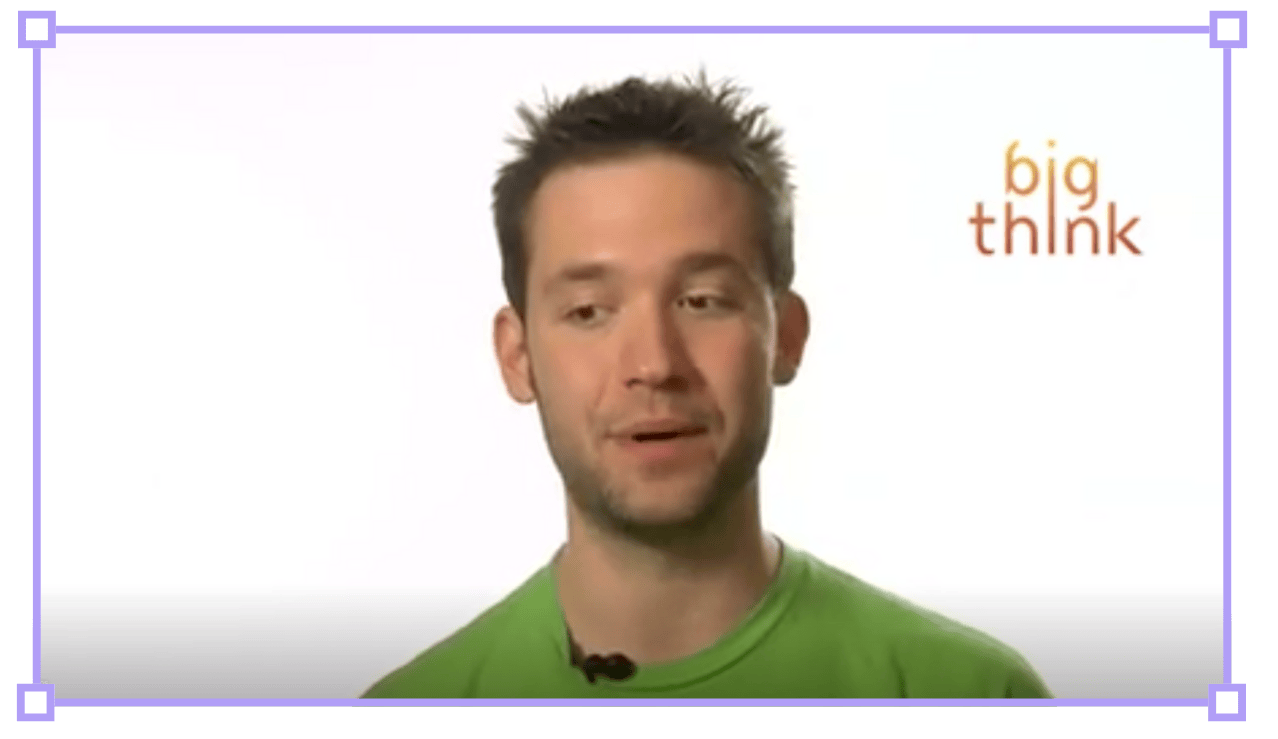Read time: 2 minutes 58 seconds

I have a confession to make.
I’m long overdue on a build-in-public piece.
Those that have been hanging around this corner for a while would know that every 6 months or so, in place of our usual weekly case study, I do an inside-out breakdown of my own business:
Well - as of July 2025 I’m now 2 years into Strategy Breakdowns (1.5 years full-time), and there’s a reflection-shaped hole in my content archive.
As I write this, I’m sitting in a cosy apartment in a jazzy neighbourhood called El Cabanyal in Valencia, Spain.
I’m living here for a month, then off to Granada, then Madrid.
If you read any of the above build-in-public pieces you’d know that a perennial goal of mine, beyond booking a world-class lineup of sponsors, or launching a career-defining education product, was to pack up my entire life in Australia to write, build, and explore the world with nothing more than a suitcase and a laptop.
In the absence of a deeper update (although I promise to ship one over the holiday period), you might enjoy this post explaining the activities, tools, and somewhat unconventional rules that power my business today.
It kinda blew up, so I’ll be dropping more of these soon (particularly on X).
Now then, a quick word from our legendary sponsors, then onto today’s breakdown.
— Tom


90% of marketers fear losing SEO visibility to AI.
If you’ve noticed your brand slipping from search — or disappearing entirely from AI answers — you’re not imagining it.
Ahrefs’ Brand Radar shows exactly where your brand shows up (or doesn’t) across Google, ChatGPT, and Perplexity — and how you compare to competitors.
Stay visible as search evolves. Don’t let AI rewrite your relevance.
The real conversation product leaders are having about AI
Between the hype and the anxiety, it’s hard to find an honest discussion about what’s actually changing.
Atlassian’s new podcast, Product in Practice, dives into the real work behind great product management — not frameworks for the sake of frameworks, not surface-level advice. Just candid conversations with product leaders figuring it out as they go.
Each episode brings two things together:
a conversation about where the discipline is heading
a hands-on look at how experienced PMs actually work
The first series focuses on AI, featuring product leaders from Google, Spotify, Meta, Reforge, Descript, and more.
Thank you for supporting our sponsors, who keep this newsletter free.



Chess Move
The what: A TLDR explanation of the strategy
Too many platforms treat comments as an afterthought, buried beneath the main content.
Reddit did the opposite, making the comment section the main drawcard for each piece of content posted to the platform.
By wiring three community + product design choices together,
(i) the upvote system, which makes good content visible
(ii) karma loops, which make good content desirable
(iii) nested threads, which makes good content scalable
→ Reddit turned idle, anonymous readers into co-creators.
The result:
A self-sustaining discussion machine.
Where users don’t just consume content, they curate, rank, and refine it at scale. A comment section users will just as eagerly consume as the main post.
This product architecture helped Reddit grow to over 100k+ active communities with an average usage time of ~30 minutes/day per U.S. user, and over 2.7 billion comments a year.

💡
Strategy Playbook: Design your product so users don’t just engage, they improve the experience for everyone when they do


Breakdown
The how: The strategic playbook boiled down to 3x key takeaways
1. Power to the people
Next to every comment in Reddit is two simple arrows. Up and down.

Every upvote (up arrows) or downvote (down arrows) is a crowd-sourced editorial decision.
In late 2009, Reddit adopted a confidence-based “Best” ranking system for comments that changed which comments users saw:
Instead of rewarding the earliest comments (a bias that plagues most social sites), this “Best” ranking estimates the true quality of a comment (an algorithm based on things like karma, number, quality, & speed of upvotes, and ratio of downvotes) rather than its raw net number of upvotes.
That means a new comment with 10 upvotes and 1 downvote can outrank an old one with 100 upvotes and 50 downvotes (if it’s “Best” weighting is stronger).
The effect?
Threads stay dynamic, not static.
Smart new ideas can still rise.
Meaningful contributions get consistently rewarded, even late in the post lifecycle.
The Reddit algorithms ensure quality, not timing, wins.
2. Gamified reputation
Every upvote is more than just a vote on content → it’s a deposit into a user’s public reputation.
Reddit’s karma system aggregates those deposits into a running score of credibility and contribution.
It’s simple, visible, and sticky.

Users chase karma because it feels like proof of value and reputation. And can be used to decide who is allowed to post (and even comment) on certain subreddits.
Reddit’s internal systems also adjust rate limits (how frequently you can post, comment, or send messages) based on your karma and account age. This often serves as a user quality filter for new features or pilot programs.
Then when you add awards (little medals users can buy or give to great comments) you turn appreciation into a status game.

The loop looks like this:
Good comment → Upvotes → Karma → Recognition → More good comments (from both the original commenter and other commenters).
It’s cheap, programmatic, elegant, and self-reinforcing. No real-world or financial incentives, just human psychology baked into product design.
Visibly rewarding quality contributions so users will come back to earn more of it.
3. Threaded conversations that reward depth
Rather than the typical linear comment section structure, Reddit designed branching trees.
Each reply spawns its own mini-conversation, indented below the one before it.

You can dive into one thread or collapse it entirely, so massive discussions stay readable and self-contained.
This gives users choice and context: each branch often covers a distinct topic with its own focus, character, and inside-jokes.
You can scan top-level comments to find what interests you, then dig into those sub-threads, scan again, then continue digging further.
The result? Every post becomes a forest of self-contained adjacent conversations instead of one single noisy room. A stark contrast to how people interact on other platforms:
YouTube / LinkedIn: Just one layer of replies possible.
X: A single vertical chain with 1 visible layer of reply threads. Reading past the first layer opens a new screen on mobile and desktop, removing the feeling of threads inside a single comment section.
Discord/Slack: Threads exist, but they’re 1 layer, and secondary in the conversation hierarchy: they’re fragments from the core chat, rather than the focus.
On Reddit, threads invite contribution and quality conversation because they give both context and control:
You can join any conversation at an appropriate depth / level / stage, without derailing the main one.
You can see how many replies each comment has to gauge the volume of conversation around a particular topic.
You can scan top-level comments, then go deep on sub-branches in order of what keeps you interested.
Every element of Reddit’s threading system nudges users toward organic, high-context discussions.
Not just posting → participating.


Rabbit Hole
The where: 3x high-signal resources to learn more
[4 minute read]
The math behind Reddit’s “Best” sort from statistician Evan Miller.
Before Reddit, sites ranked comments by average rating. Miller showed why that fails statistically and introduced the Wilson score interval — a confidence-based system that now powers ranking on Reddit, Stack Overflow, and many others.
Still the canonical essay every platform builder should read before attempting to create a ‘quality’ algorithm.
[44 minute watch]
Reddit’s cofounder on the psychology of Karma.
Ohanian unpacks how leaderboards and habit loops turned Reddit into a daily ritual. And why the team has spent years fighting vote manipulation.
Great insights into Reddit’s early design mindset: growth by feedback loop.
[15 minute read]
The definitive survey of Reddit research. Covering everything from vote manipulation to popularity prediction and gamified reputation.
The “Reddit 101” syllabus for understanding how algorithms, culture, and conversation evolve together.
Bought to you by Sheldon Bishop, Tom Alder, and a small but mighty team of research agents obsessed with unpacking tech’s most interesting strategies.


Whenever you're ready, there are 3 ways we can help you:
Our flagship course on how to use free internet data to make better strategic decisions. Contains 5 years of strategy expertise, proven methods, and actionable tactics to accelerate your career with modern-day strategy skills.
We have a growing audience of 100,000+ strategists from top companies like Google, Meta, Atlassian, Stripe, and Netflix. Apply to feature your business in front of Strategy Breakdowns readers.
One of the most common questions we get asked is: “What tools do you use to run Strategy Breakdowns?” So, we’ve open-sourced our tech stack to give you an inside-look at exactly what tools we’re using to power each corner of this operation.







